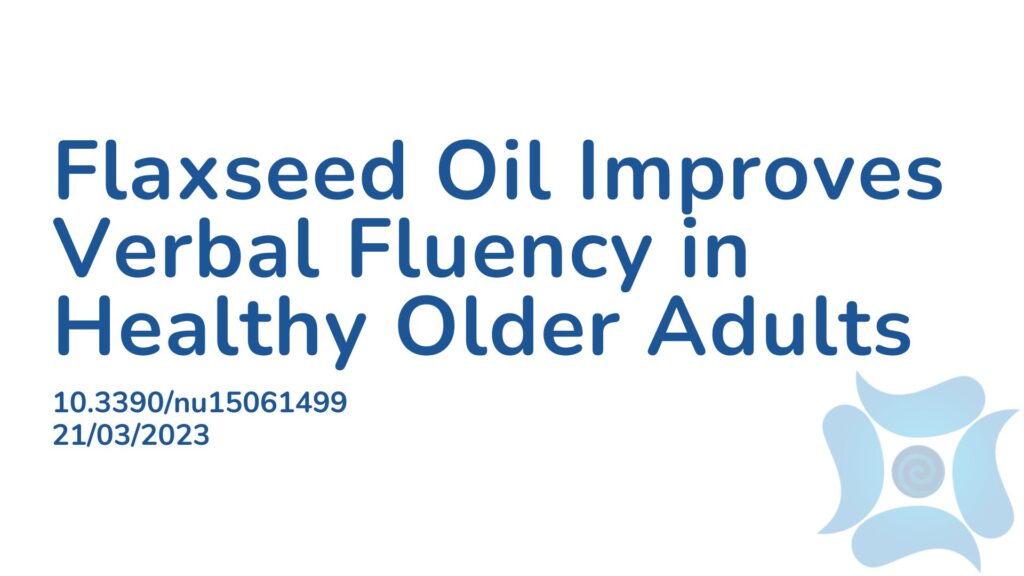Summary:
While the cognitive benefits of docosahexaenoic acid (DHA) supplements are well-established, the potential impact of alpha-linolenic acid (ALA), a precursor to DHA, remains under-explored. This study aimed to assess the effects of ALA on various cognitive functions in healthy older subjects. In a randomized, double-blinded, placebo-controlled clinical trial involving 60 healthy older adults (aged 65 to 80), participants were assigned to receive either 3.7g per day of flaxseed oil containing 2.2g of ALA or a placebo with the same amount of calories (corn oil) with 0.04g of ALA for 12 weeks. The results showed that daily consumption of flaxseed oil containing 2.2g of ALA enhanced cognitive function in healthy individuals experiencing age-related decline. Given the significance of cognitive decline in predicting Alzheimer’s disease, further studies in this area is critical.
Abstract:
The effects of docosahexaenoic acid supplements on cognitive function have long been demonstrated, but the effects of alpha-linolenic acid, a precursor of docosahexaenoic acid, have not been fully tested. The search for functional foods that delay cognitive decline in the older adults is considered a very important area from a preventive perspective. The aim of this study was to conduct an exploratory evaluation of alpha-linolenic acid on various cognitive functions in healthy older subjects. Sixty healthy older adults aged 65 to 80 years, living in Miyagi prefecture, without cognitive impairment or depression, were included in the randomized, double-blinded, placebo-controlled clinical trial. Study subjects were randomly divided into two groups and received either 3.7 g/day of flaxseed oil containing 2.2 g of alpha-linolenic acid, or an isocaloric placebo (corn oil) containing 0.04 g of alpha-linolenic acid for 12 weeks. The primary endpoints were six cognitive functions closely related to everyday life: attention and concentration, executive function, perceptual reasoning, working memory, processing speed and memory function. After 12 weeks of intake, changes in verbal fluency scores on the frontal assessment battery at bedside, a neuropsychological test assessing executive function, in which participants are asked to answer as many words as possible in Japanese, were significantly greater in the intervention group (0.30 ± 0.53) than in the control group (0.03 ± 0.49, p < 0.05). All other cognitive test scores were not significantly different between the groups. In conclusion, daily consumption of flaxseed oil containing 2.2 g alpha-linolenic acid improved cognitive function, specifically verbal fluency, despite the age-related decline, in healthy individuals with no cognitive abnormalities. Further validation studies focusing on the effects of alpha-linolenic acid on verbal fluency and executive function in older adults are needed, as verbal fluency is a predictor of Alzheimer’s disease development, important for cognitive health.
Article Publication Date: 21/03/2023
DOI: 10.3390/nu15061499



